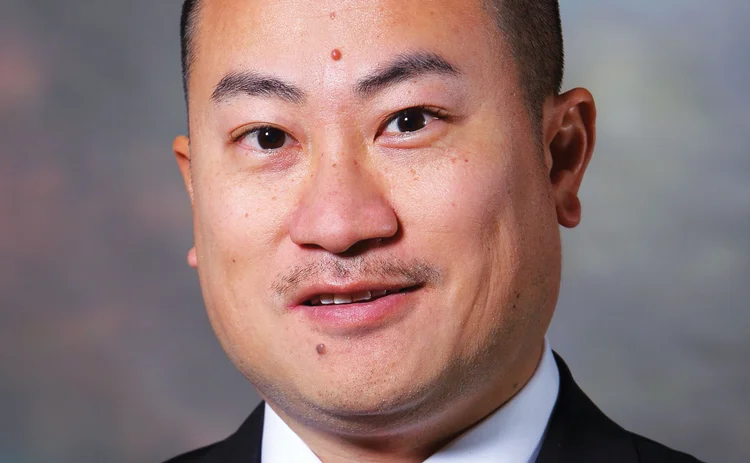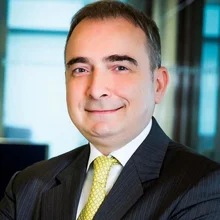
Sustainable investment house of the year: BNP Paribas
Asia Risk Awards 2018

BNP Paribas has set a positive sustainable finance agenda at the heart of its business, finding ways to fund projects and unlock new revenue streams for environmental, social and governance (ESG) investors and firms seeking support.
“We are seeing more investor appetite looking for both green and social solutions, with a sharp growth of investment products in the Asia-Pacific region looking at these vehicles,” says Frank Kwong, head of primary markets for the Asia-Pacific region at BNP Paribas.
The bank has sought to embed its sustainable finance and investment philosophy across its advisory and investment businesses, in order to maintain positive momentum. In taking a collaborative approach with clients, the firm has supported a wide range of projects around the region.
These have included the financing of a green and socially inclusive natural rubber production facility in Indonesia, built on land that had been heavily degraded. This involved the issuance of multi-tranche, senior, secured fixed-rate sustainability notes, which were used to support a loan to a corporate that is aiming to develop the rubber plantation, which is expected to create 16,000 jobs. The use of long-dated notes to support the loan, due in 2033, makes them relatively rare in a market that is often short of longer-term debt instruments.
BNP Paribas acted as the sole arranger and lead manager of the note issuance, thereby linking capital providers and capital users.
“There is both direct and indirect funding for green sustainable projects,” says Kwong. “In the case of rubber plantation funding that we have worked on, it is much more direct. The more indirect aspects are things like funding of green initiatives through green bond issuance. BNP Paribas works in both – we try to deliver more direct impact where possible.”
Based on both value issued and number of issues, the bank estimates it is currently the third-largest bookrunner for green bonds in Asia ex-China, supporting issues by Bank of China, China Development Bank, Mizuho and Industrial and Commercial Bank of China, while being the largest bookmaker globally. While there has been some debate over the need for a standard to better support investors, Kwong says this has not proven a barrier and that current progress is positive.
“I don’t think that an official definition is needed,” he tells Risk.net. “The European Union is putting together a more complete taxonomy that is set towards green bonds, and working in line with regulators is going to increase the commonality of the framework on the green bond side.”
As the sole financial adviser for the Formosa 1 offshore wind farm project being developed off the coast of Miaoli in Taiwan, due to complete in 2019, BNP Paribas also took on several other roles, including the mandated lead arranger, co-ordinator for the interest rate swap needed, the deal-contingent swap provider and the account bank on the transaction. The firm notes that as the first project finance for an offshore wind farm, along with the first use of a deal-contingent swap in Asia to support project finance, conducted in local currency, it has set a precedent and opened doors for future projects.

“When we were generating financing of the wind farm projects, it required the right solution for a global bank that had the right mechanisms and could work with the local banking market with access to Taiwan dollars,” says Olivier Rousselet, head of territory for Taiwan, offshore wind, at BNP Paribas.
“There were many milestones to reach before we could conclude the transaction – for example, there was no Taiwan dollar financing market for debt of 16 years plus. We asked the Taiwan National Banking Bureau, the local regulator in Taiwan, to accommodate allowing foreign bank branches to issue long-dated contracts.”
It has also proven that where policies need to avoid negativity, it is capable of putting its weight behind projects that are helping to sustain environmental objectives, in such a way that businesses can be included. One example of this is its palm oil sector policy, announced in the summer of 2017, which sets out specific criteria that must be applied to palm oil companies if the bank is to support them with financing.

“It is worth pointing out that we are not anti-palm oil – we support the sector if it is producing its product in a responsible manner,” says Robert Barker, head of sustainable finance and investment for global markets, Asia-Pacific region, at BNP Paribas. “The issue of palm oil production looks not only at the deforestation, but at the social impact and labour standards.”
That holistic approach is what has impressed the judges this year, driving the positive impact of sustainable finance right into the earth.
“We want to make sure that the environmental health and safety policies are implemented upon the ground in those initiatives. And through due diligence of the transactions, we are looking at the finances from an ESG perspective,” says Barker.
Only users who have a paid subscription or are part of a corporate subscription are able to print or copy content.
To access these options, along with all other subscription benefits, please contact info@risk.net or view our subscription options here: http://subscriptions.risk.net/subscribe
You are currently unable to print this content. Please contact info@risk.net to find out more.
You are currently unable to copy this content. Please contact info@risk.net to find out more.
Copyright Infopro Digital Limited. All rights reserved.
As outlined in our terms and conditions, https://www.infopro-digital.com/terms-and-conditions/subscriptions/ (point 2.4), printing is limited to a single copy.
If you would like to purchase additional rights please email info@risk.net
Copyright Infopro Digital Limited. All rights reserved.
You may share this content using our article tools. As outlined in our terms and conditions, https://www.infopro-digital.com/terms-and-conditions/subscriptions/ (clause 2.4), an Authorised User may only make one copy of the materials for their own personal use. You must also comply with the restrictions in clause 2.5.
If you would like to purchase additional rights please email info@risk.net
More on Awards
Market liquidity risk product of the year: Bloomberg
Bringing clarity and defensibility to liquidity risk in a fragmented fixed income market
FRTB (SA) product of the year: Bloomberg
A globally consistent and reliable regulatory standardised approach for FRTB
Best use of cloud: ActiveViam
Redefining high-performance risk analytics in the cloud
Best use of machine learning/AI: ActiveViam
Bringing machine intelligence to real-time risk analytics
Collateral management and optimisation product of the year: CloudMargin
Delivering the modern blueprint for enterprise collateral resilience
Flow market-maker of the year: Citadel Securities
Risk Awards 2026: No financing; no long-dated swaps? “No distractions,” says Esposito
Pricing and analytics: fixed income – Quantifi
Quantifi delivers high-performance, transparent and adaptable pricing and risk analytics for fixed income and credit markets
Derivatives house of the year: Citi
Risk Awards 2026: Rev up, RWAs down, as US bank gets back on track (with added XiNG and XiP)







